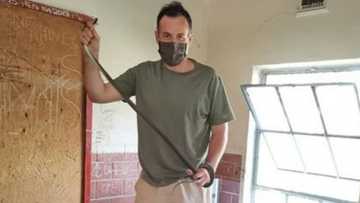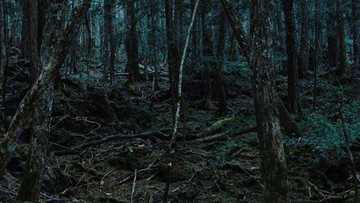Perfect Blend of 2 Contrasts: Ukraine-Nigerian Couple Talks Marriage & Family; Surviving Russia's Invasion
On Thursday, February 24, when Russian troops aggressively invaded Ukraine, a sovereign neighbour nation, in what was described as a “special military operation" by Moscow, Nigerian-born medical doctor, Femi, his beautiful Ukrainian wife Iryna –and their adorable kids did not envisage the crisis would degenerate into a large-scale war.
PAY ATTENTION: Click “See First” under the “Following” tab to see Briefly News on your News Feed!
The war could have obviously been averted, but for the ballooning ego of one man: Russian president Vladimir Putin who, despite global heavy sanctions and condemnations, continues to blow the trumpet of terror and tremor.
Before Femi and his family could totally decipher the situation, there was an urgent need to quickly leave Ukraine and join the trains of millions fleeing the haunting scenes of war for Poland.
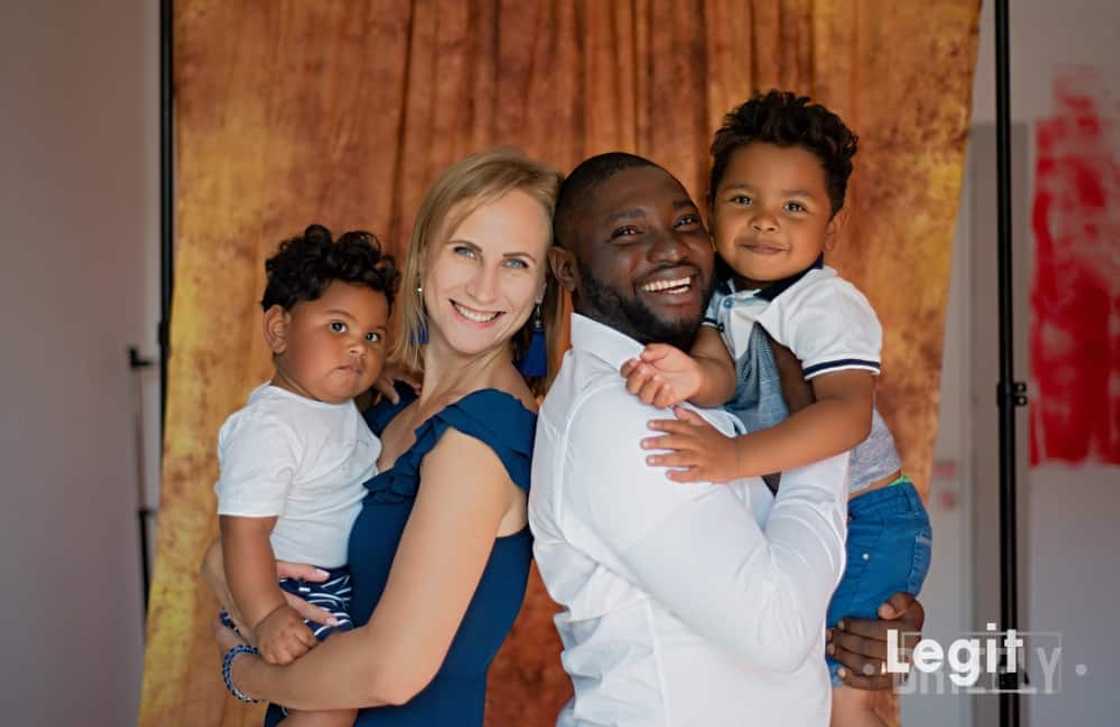
Source: Original
Ukraine has since become a war scene, with beautiful skyscrapers reduced to rubbles, armless civilians rendered homeless; dead bodies littered streets like hogs as some states including the capital Kyiv now look like necropoleis because of Moscow’s menace and atrocities.
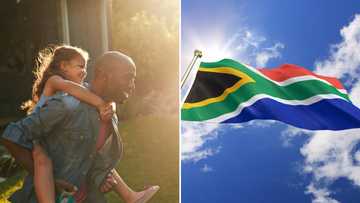
Read also
Mzansi citizens share Freedom Day feels, some not feeling so free: "Celebrating R350 and unemployment"
“It was kind of more of like a mirage,” Femi, now settled in Poland with Iryna and their two kids, was emotional when he told Briefly News about the fear-invested atmosphere on the first day of the invasion.
PAY ATTENTION: Never miss breaking news – join Briefly News' Telegram channel!
“We all heard the rumours, the tension was in the air but everybody went about their day normally thinking somehow-someway they would settle it amicably. This is 21st century. We were getting ready for another day, children were getting ready for school when my wife told me Russia has attacked Ukraine. It was surreal basically.”
Trapped in constant fear: How a new journey began
The attack overwhelmingly changed the mood, plans and dimension of things in Ukraine. But Femi and his family were lucky; they lived in Lviv, a city in western Ukraine around 70 kilometres from the border with Poland. So in terms of the physical conflict, damage or the impact of the war itself, they did not feel it for the “first couple of days”, though there was tension in the air.
In the face of overbearing threats from the Russian troops, Ukraine’s President Volodymyr Zelensky declared martial law across the country after Russia recognised the independence of two rebel regions in eastern Ukraine, where a nearly eight-year conflict with the pro-Russia rebels has leftover 15,000 dead.
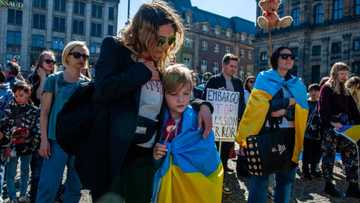
Read also
Ukraine’s Embassy to South Africa celebrates freedom together with Mzansi on Freedom Day 2022
The law prohibits male Ukrainians aged 18 to 60 from leaving the country. They have to defend their land. But since Femi is not a Ukrainian, he was given the waiver to leave the country.
On Monday, March 8, the couple packed what their hands could grab and sadly left Ukraine amid constant fear and dilemma. Home was no longer home. They left behind all that they have laboured for.
“We have children and we had to hide with them in the basement a few times per day (due to the sound of missiles). It was pretty hard. So after a few weeks, we had to decide on leaving for Poland. We didn't know what were we going to do there. We had to go. So we got to the border in my friend's car. We got to the city of Lublin and we are staying at a place that was provided by Polish people, for us,” Femi said.
“We were in rush headlong”
The implication of the war is that people are left at the mercy of what comes their way. By the end of March, thousands of Ukrainians have been scattered and emotionally destabilised in a sudden search for saviours and survival in the face of death. Almost 11 million Ukrainians had to leave everything behind and head forward without knowing what the future holds.

Read also
Russia issues another "serious" nuclear war threat, wants NATO to stop supplying Ukraine with weapons
“That reality that you're leaving everything and you're just going, you don't know what you're going to do, you don't even know where you're going next (is mind-boggling). You don't know where you're standing by the time you cross the border,” he further revealed about the trauma faced by the affected Ukrainian.
However, for Femi and his family, there was a direction of where they were going in Poland, all thanks to a friend who they were in touch with prior to the full escalation of war.
A new life with a long thread of uncertainties has since begun. The young family is now integrating itself into the Polish atmosphere as children have to return to school. Femi and Iryna told Briefly News that the people and government of Poland have been incredibly supportive in terms of physical and moral assistance. However, language– especially for the kids– is a barrier. Besides, no home in a strange land.
***
Femi and Iryna: a bold blend of two cultural beauties
Ukraine has become a part of Femi's destiny. It started when a Nigerian student of Lviv National Medical UniversityMicrobiology met his beautiful Ukrainian wife. Love inspired Femi to learn more about the homeland of his beloved Iryna.
Later, Ukraine became one of two homelands for their two children. Both of those beautiful, ancient cultures - Ukrainian and Nigerian - have become the foundation for Femi and Iryna family's happiness.
Despite the gap and cultural difference, they both knew it was a ship about to sail on the sea of love– forever!
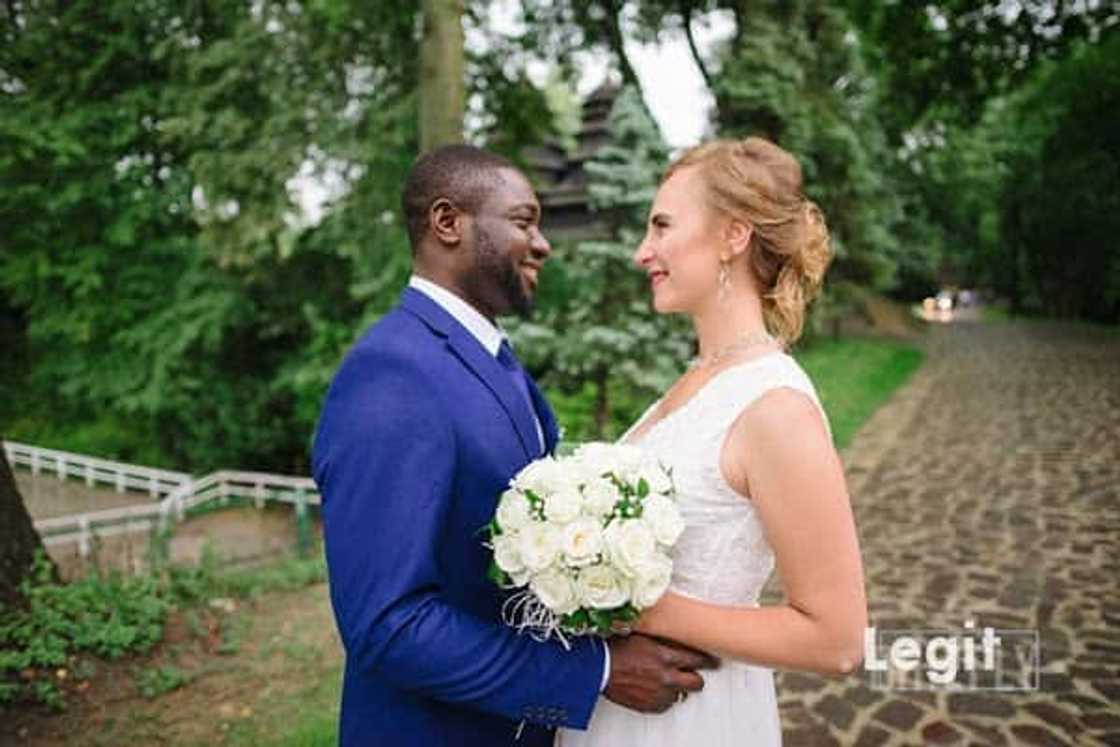
Source: Original
“It was kind of from the first day from the first date, it was love. We dated for five years, then got married,” Iryna said about her husband as they looked into each other’s face with a beaming light of affection.
“He is a nice person. He's very open and intelligent, a very nice person. I got married to him for some reason which maybe is hard to explain.”
The marriage has produced two beautiful children (Lukas and Damian), with the second one born in Lagos when the couple came to Nigeria. For Iryna, it was an opportunity to learn more about African and Nigerian/Yoruba cultures.
However after two years, they “had the decision to come back to Ukraine and the plan was to stay in Ukraine” for a better life and for the sake of their two children.
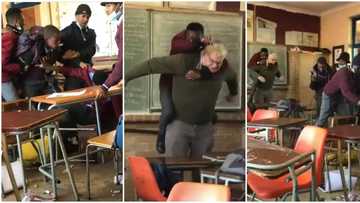
Read also
Stubborn secondary school kids scatter class, drag each other, student jumps on teacher's back in funny video
Ukraine and Nigeria: The striking similarities
When asked about the similarities between Ukraine and Nigeria, Femi and Iryna agreed that both countries –and their people have a daunting spirit of resilience, having fought for their freedom from the hands of imperial colonialists. Ukraine was part of the USSR and Russia remains its only remnant in terms of political structure and economic might before it broke away while Nigeria got its freedom from the British in 1960.
For Femi, Ukraine is like a verdant field of quality education for Nigerians who come to study. In fact, a large number of Nigerians in Ukraine are students who have adapted to the country’s way of life and culture.
“Nigerians in Ukraine, 60-70% of them are students or they came in as students before finally settling down. I saw the people there, their families. My parents wstudied in Ukraine, Kharkiv. So they both speak Russian. They understand Ukrainian a bit, they are very intelligent people, very open-minded and happy to have me there. It really helped me with all this new way of living there,” he said.
The father of two concluded that there are “many Ukrainians who work in Nigeria and live a normal life.” The two countries are super friendly to each other, though there are some visible differences.
For Iryna, “Nigerian people are really open and really loud in a good way.”
Nigerian food and raising super-amazing bi-racial kids
Despite living in Ukraine, Femi said he still imbues his kids with the Nigerian culture and spirit and let them have a taste of Nigerian nice delicacies. In Ukraine, there is an African market where Nigerian food can be bought. It is a world of endless possibilities, after all.
“In terms of foods, I think like 50\50. Our children like Nigerian food, except that they cannot eat peppery food,” Femi said.
His wife corroborated this when she revealed her love for egusi, a melon-made soup popular in the Southern part of Nigeria.
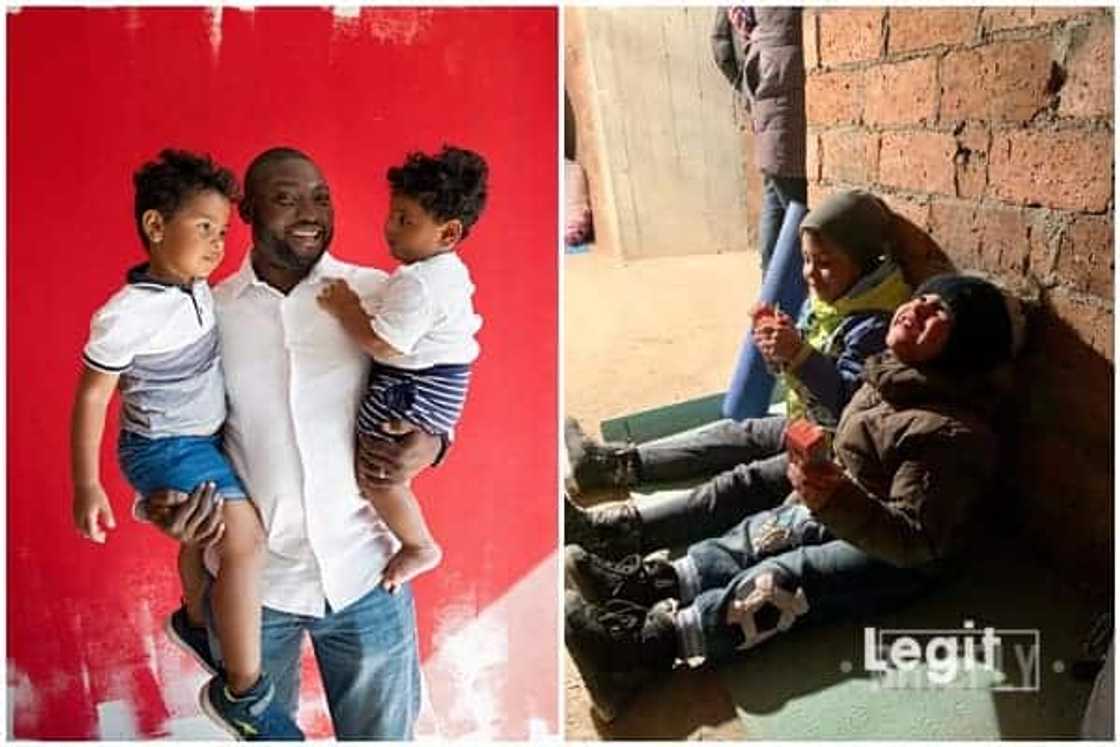
Source: Original
On culture and language, the couple said their two kids represent both racial realities, though they predominantly learn and “focus on Ukrainian culture.”
The kids also have Nigerian names: Lucas is Ayomide, a Yoruba name meaning “my joy has arrived.” Damian is Ayobami.
***
Caught in webs of uncertainty and hope
With the war still ongoing in Ukraine amid global clampdown on Russia, Femi and his family, like legions of affected Ukrainians, face the dark reality of uncertainties.
“This war is between Ukraine and Russia, which attacked, it shouldn't be happening. Everything that Russians are doing, this killing people, taking lands, destroying cities, it cannot be possible in 21st century. They are destroying people's life. They destroyed our simple life. All we wanted is just to live, go to our work, be with our children in our house. That's all we wanted. And now our plans are destroyed. It cannot happen”, he said
The couple, however, expressed optimism that Ukraine will win the war because they have stood against oppression, which Nigeria must learn from.
According to Femi, Nigeria, like Ukraine, is a country with potential and endless possibilities miserably plagued by bad leadership. He charged Nigerians to resist oppression and let their voice be heard.
Source: Briefly News

Kelly Lippke (Senior Editor) Kelly Lippke is a copy editor/proofreader who started her career at the Northern-Natal Courier with a BA in Communication Science/Psychology (Unisa, 2007). Kelly has worked for several Caxton publications, including the Highway Mail and Northglen News. Kelly’s unique editing perspective stems from an additional major in Linguistics. Kelly joined Briefly News in 2018 and she has 16 years of experience. Kelly has also passed a set of trainings by Google News Initiative. You can reach her at kelly.lippke@briefly.co.za.

Naomi Kobbie Naomi is an entertainment writer with 3 years experience in the world of radio and print media. She is a language graduate from the University of Pretoria (2020) and has worked for Briefly News since 2021. Naomi has a passion for the written word, whether through her work as a journalist or as a soulful singer. "When I'm not working, I spend my time producing music, travelling or snuggling up with a good movie and some butter popcorn."


